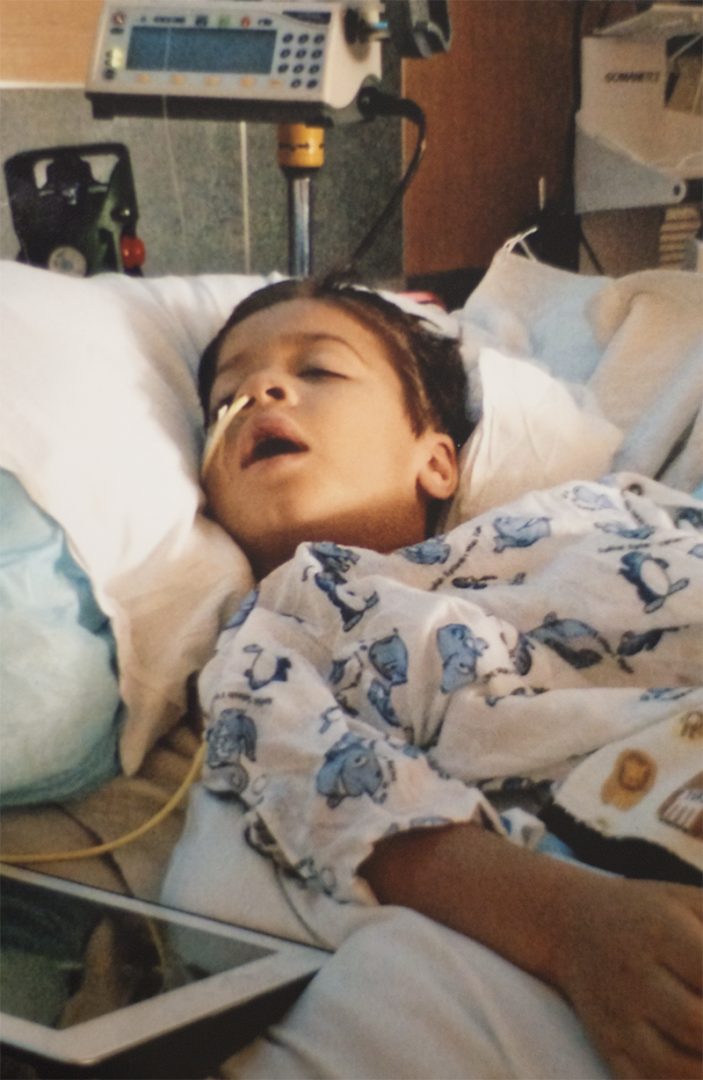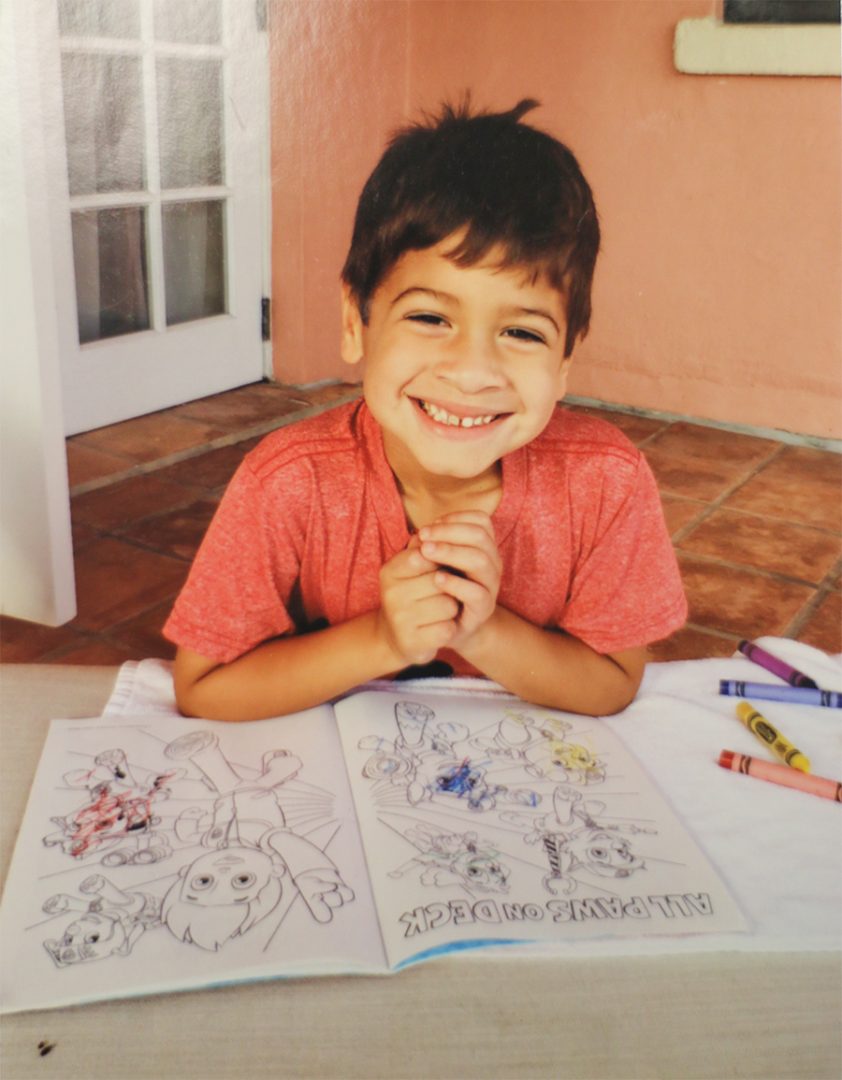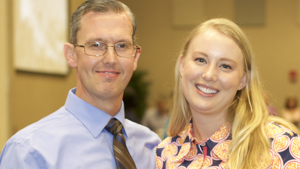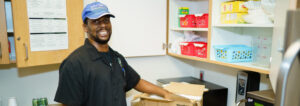The Smile a Brain Injury Couldn’t Stop

Back to physical health resource hub
When you see the sweet smile on six-year old Ayden’s face, you’d never guess it hides such a traumatic past.
Something seemed very wrong when Ayden suddenly started vomiting uncontrollably at just 11 days old. At the hospital they learned his heart rate was 300 beats per minute. Ayden was diagnosed with supraventricular tachycardia (SVT). During an episode of SVT, the heart’s electrical system doesn’t work correctly, causing the heart to beat very fast.
Some individuals with SVT can control the symptoms on their own or don’t have symptoms at all. But it was determined that Ayden would require medication to control his rhythm.
The Procedure
As Ayden got a little older, doctors tried multiple times to wean him off the medication. But every time they tried, his heart rate shot back up. The doctors suggested that Ayden undergo a catheter ablation once he was old enough. The procedure would destroy the tiny areas of heart tissue causing the problem and his heart would function normally.
On August 25, 2014, Ayden went in for the ablation procedure. His family was relieved he was out of surgery much sooner than expected…until they found out why. There had been complications during the procedure, at which point Ayden went into cardiac arrest twice.
Following the surgery Ayden was intubated for 3 days, and when they finally removed the tube, he wouldn’t wake up. They realized a loss of oxygen during surgery caused damage to his brain.
Waking Up
 Doctors prepared Ayden’s family for the worst case scenario. They thought he might be blind and unable to walk or talk again. After 3 weeks, Ayden was stable but still not regaining consciousness. It was recommended that he be taken from Daytona to Brooks Rehabilitation Hospital in Jacksonville for their specialized Response Evaluation Program (REP) for brain injuries.
Doctors prepared Ayden’s family for the worst case scenario. They thought he might be blind and unable to walk or talk again. After 3 weeks, Ayden was stable but still not regaining consciousness. It was recommended that he be taken from Daytona to Brooks Rehabilitation Hospital in Jacksonville for their specialized Response Evaluation Program (REP) for brain injuries.
Clinicians used the rigorous REP protocol to monitor how Ayden responded to his environment with the goal of elevating Ayden’s level of consciousness. But at the end of the two-week program, Ayden remained in a minimally conscious state. Despite making positive gains, he wasn’t yet ready for intense inpatient rehabilitation.
His parents were given detailed training on how to feed and care for him safely at home, where he continued to receive physical, occupational and speech therapy. Slowly but surely, Ayden started regaining consciousness.
On December 30, Ayden was finally able to come back to Brooks for an intensive five weeks of inpatient rehabilitation.
Starting Over
 He had to re-learn everything. Nurses and therapists worked very hard to help him crawl, then walk. Ayden was an enthusiastic participant. His therapists quickly realized he responded better to therapies when listening to music so they memorized the lyrics to his favorite One Direction songs and sang them non-stop during his treatments.
He had to re-learn everything. Nurses and therapists worked very hard to help him crawl, then walk. Ayden was an enthusiastic participant. His therapists quickly realized he responded better to therapies when listening to music so they memorized the lyrics to his favorite One Direction songs and sang them non-stop during his treatments.
Ayden was also beginning to say a few words. To assist, he was trained to use a communication app on the iPad. Ayden now was able to express feelings (“I’m happy, sad, angry, etc.”). He could choose his meals, choose his therapy activities, and perform tasks relating to colors and numbers. He loved using the app and his mom eagerly downloaded it so he could continue once they went home.
Ayden, for the most part, is now back to being a six-year old. He is doing very well in school where he continues to get physical, occupational and speech therapies. He also has occupational therapy once a week at home in Ormond Beach. Ayden still has SVT and is still on medications. And for now, that’s ok. Everyone is just happy to have Ayden in their life and return to some sort of normalcy.
His mom Alma says “He is such a happy child. What happened was heartbreaking, but you just have to keep moving forward. There is no other choice.”
For more information about the brain injury service Brooks provides click here.


